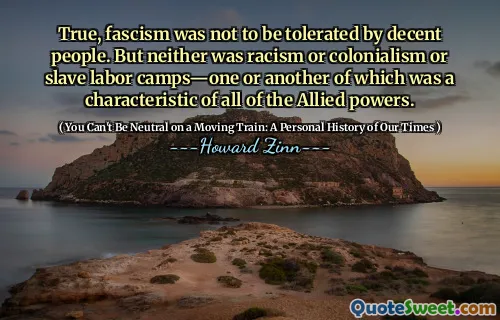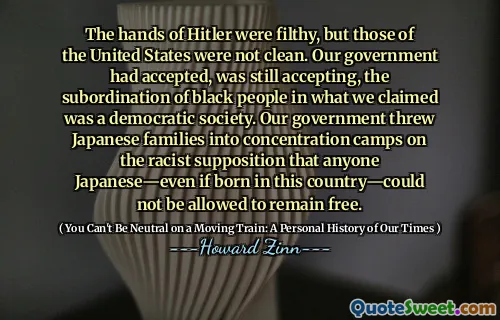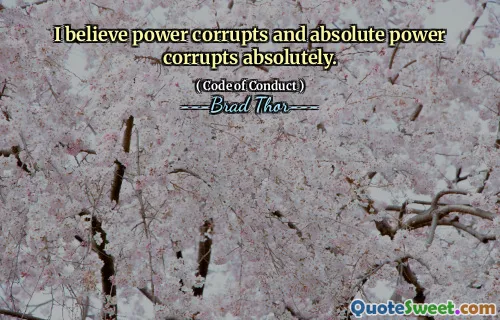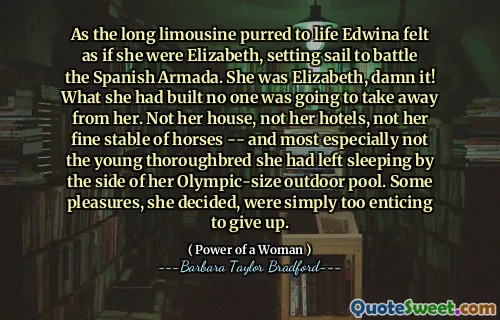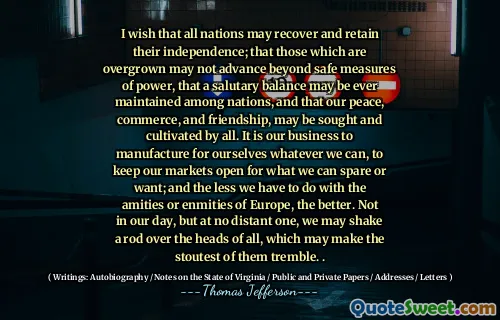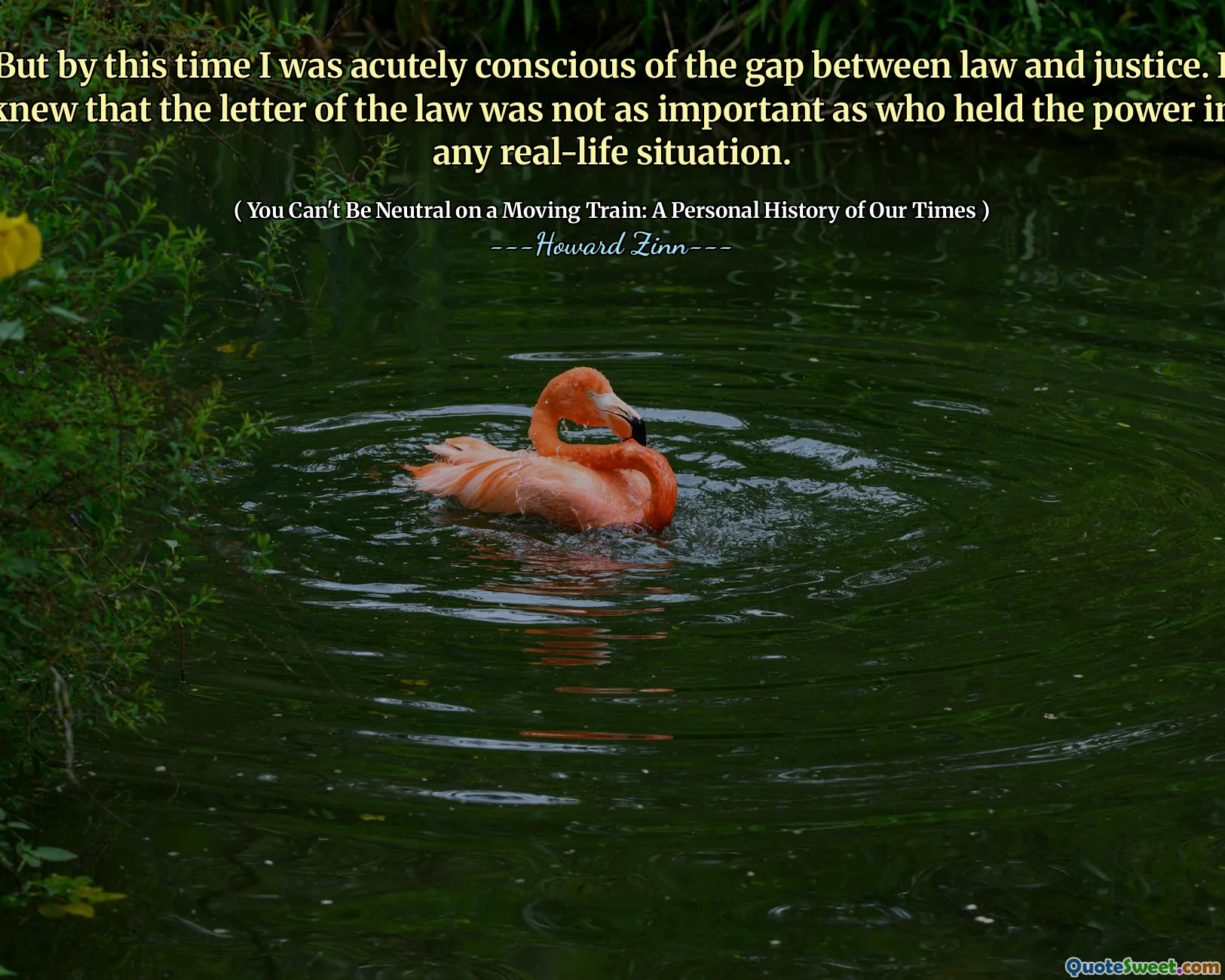
But by this time I was acutely conscious of the gap between law and justice. I knew that the letter of the law was not as important as who held the power in any real-life situation.
This quote from Howard Zinn highlights a fundamental tension between the concepts of law and justice, a theme that resonates deeply in the study of society and governance. Laws are often considered the framework within which justice should be administered, but Zinn points out a sobering reality: the law itself can be compromised by power dynamics. This brings up the critical awareness that legality does not necessarily equate to morality or fairness.
In many societies, the enforcement and interpretation of laws are influenced or controlled by those with power — political leaders, economic elites, institutions — which means that the 'letter of the law' can become a tool for preserving existing power structures rather than delivering true justice. This detachment between legal statutes and equitable outcomes can perpetuate systemic inequalities and injustices.
Reflecting on this, one is reminded that laws are human constructs and, as such, are susceptible to the biases, interests, and agendas of those who design and implement them. Justice, by contrast, aims at fairness and ethical rightness, which may challenge established legal parameters. Zinn's insight encourages a more critical approach to law, prompting us to question not only what the laws are, but who benefits from them and at what cost to others.
Moreover, this thought invites deeper activism and awareness: if justice cannot always be found within the confines of the existing law, perhaps it calls for reform or even revolution to realign laws with ethical principles that promote equality, fairness, and dignity for all. It also urges individuals to recognize their role in this process — as bystanders, practitioners, or challengers of the law.
In essence, Zinn compels us to maintain vigilance over how power operates through legal systems. Understanding this distinction is vital for anyone concerned with social change, human rights, or public policy, as it reminds us that a just society requires more than just laws; it requires equitable power relations and the courage to confront the disparities between legal codes and justice.

